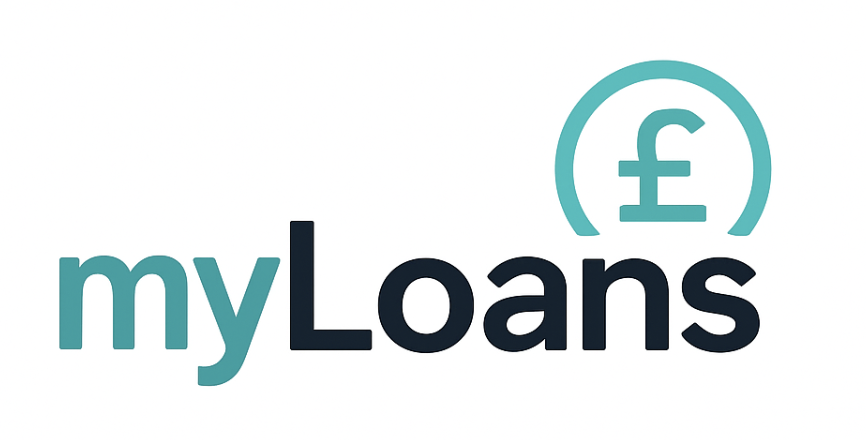Guarantor Mortgages: A Complete Guide
A guarantor mortgage can make the difference between being declined for a loan and stepping onto the property ladder. A guarantor is someone — usually a close relative — who agrees to cover repayments if the borrower cannot. This added security reassures lenders and opens the door to mortgages that may otherwise be out of reach.
The Role of a Guarantor
-
A guarantor essentially backs the borrower’s promise to repay.
-
The role requires trust, financial stability, and a willingness to take on significant responsibility.
-
Lenders see guarantors as a safety net, which reduces risk.
-
The guarantor’s financial health is at stake if the borrower defaults.
Qualifications for a Guarantor
-
Must usually have a strong credit history and sufficient income.
-
Many lenders require the guarantor to be a homeowner with equity.
-
Retired parents with steady pensions can sometimes be accepted.
-
Guarantors should carefully evaluate their finances before committing.
The Emotional Aspect
-
It’s not just financial — it can impact family relationships.
-
Open conversations between borrower and guarantor are essential.
-
Agreeing on what happens if payments are missed helps protect trust.
Can You Have a Guarantor for a Mortgage?
Yes. Guarantor mortgages are designed for:
-
First-time buyers struggling with affordability checks.
-
Borrowers with limited or poor credit history.
-
People on modest or irregular incomes (such as self-employed workers).
The guarantor provides additional security to the lender, helping the borrower access a mortgage they might otherwise be denied.
Why Opt for a Guarantor Mortgage?
-
Offers a path to homeownership for those locked out of traditional mortgages.
-
Can result in better interest rates and loan terms.
-
Helps first-time buyers with low deposits or credit challenges.
Challenges with Standard Mortgages
-
Poor credit scores, low income, or self-employment often cause issues.
-
Strict affordability checks can prevent approval.
-
A guarantor mortgage bridges these gaps.
The Process of Securing a Guarantor Mortgage
-
Both borrower and guarantor undergo credit checks and affordability assessments.
-
The guarantor’s income, assets, and liabilities are reviewed.
-
Legal advice is strongly recommended before signing.
-
Both parties must clearly understand liabilities and risks.
How Does a Guarantor Mortgage Work?
-
The guarantor signs a legal agreement with the lender.
-
They pledge to cover missed repayments.
-
Sometimes, the loan is secured against the guarantor’s property or savings.
-
This reduces the lender’s risk and strengthens the borrower’s application.
The Impact on Borrower Eligibility
-
Borrowers may access larger loans or lower rates than they could alone.
-
Lenders see guarantor-backed mortgages as safer.
-
This option can make homeownership more achievable for those struggling to meet criteria independently.
Potential Pitfalls and Risks
-
If the borrower defaults, the guarantor must step in.
-
The guarantor’s credit score and borrowing power may be affected.
-
Can place strain on personal relationships.
-
Legal and financial consequences can be significant.
Does Being a Guarantor Affect Credit Score?
-
If repayments are missed, this appears on the guarantor’s credit file.
-
Even if payments are on time, lenders consider the guarantor’s finances more “leveraged.”
-
This can reduce access to future credit.
Strategies to Protect Credit Health
-
Maintain regular communication between borrower and guarantor.
-
Set aside savings to cover possible liabilities.
-
Review credit reports regularly for accuracy.
Who Can Be a Guarantor?
-
Typically parents or close relatives with a vested interest in helping.
-
Must have a stable income and low levels of debt.
-
Homeownership is often required, with enough equity to cover liabilities.
Legal and Financial Preparedness
-
Seek independent legal advice before signing.
-
Review affordability and ensure a financial buffer is available.
-
Understand that the guarantor agreement is a binding legal commitment.
Can Being a Guarantor Affect Getting Your Own Mortgage?
Yes — lenders will consider your guarantor liability when assessing your affordability.
-
Being a guarantor may reduce your own borrowing capacity.
-
Your financial situation could appear more stretched to lenders.
-
Keeping other debts low and income stable can offset this impact.
Guarantor Mortgages and Bad Credit
-
A guarantor can help applicants with bad credit access the property market.
-
The guarantor’s financial stability reassures the lender.
-
Terms may be more favourable than applying without support.
Do Guarantors Get Credit Checked?
Yes. Lenders conduct full credit and affordability checks on guarantors, including:
-
Reviewing credit history.
-
Assessing income and outgoings.
-
Evaluating assets such as property or savings.
Preparing for a Credit Check
-
Review your credit report and correct errors before applying.
-
Keep debts low and avoid new borrowing.
-
Ensure income is stable and well-documented.
Conclusion
Guarantor mortgages can unlock homeownership for those who would otherwise struggle to secure a loan. They are particularly valuable for first-time buyers and those with credit challenges. However, both borrower and guarantor must fully understand the risks and responsibilities.
With careful planning, open communication, and professional advice, guarantor mortgages can be an effective route onto the property ladder in the UK.
Alternatives to Payday Loans | Safer Borrowing Options
Payday loans are often marketed as a quick fix for cash emergencies, but they are not the only option available. Whether you’re facing an unexpected bill, car repair, or temporary cash shortfall, there are several alternatives to payday loans that may offer lower...
Payday Loans with Bad Credit | Direct Lender Options
If you’ve been refused credit elsewhere and are wondering whether you can still get a payday loan with bad credit, you’re not alone. Thousands of people in the UK search every month for options like “payday loans with bad credit” or “direct lender payday loans”. While...
Personal Loan Debt Consolidation UK – Is It Right for You?
Juggling multiple credit cards, overdrafts, or loans can be stressful and expensive. A debt consolidation loan allows you to combine everything into a single monthly repayment, often at a lower interest rate. In 2025, UK lenders from high street banks to online...
Emergency Loans UK – How to Borrow Fast in 2025
When an urgent expense hits — like car repairs, medical bills, or a broken boiler — quick access to funds can be essential. In 2025, emergency loans in the UK provide a way to borrow fast, with some lenders offering same-day decisions and payouts. This guide explains...
Top 10 Personal Loan Providers UK 2025 – Rates, Features & Eligibility
The UK personal loan market in 2025 offers more choice than ever, with banks, supermarkets, online lenders, and credit unions all competing for borrowers. The best deal for you depends on your credit score, loan size, and repayment term — but comparing providers side...
Best Debt Consolidation Loans UK 2025 | Top Options
Managing multiple debts can feel overwhelming, especially with credit cards, overdrafts, and personal loans all charging different interest rates. A debt consolidation loan can simplify your finances by rolling everything into one fixed monthly repayment — often at a...
Best Bad Credit Loans UK 2025 – Top Lenders Compared
Having a poor credit score, CCJs, or past defaults doesn’t mean borrowing is out of reach. In 2025, several UK lenders specialise in products designed for people with bad credit — offering smaller loans, flexible repayment terms, and eligibility checks that won’t harm...
Home Repair Loans UK – How to Cover Unexpected Costs in 2025
A leaking roof, broken boiler, or urgent plumbing issue can quickly turn into an expensive problem — often when savings aren’t available. In 2025, home repair loans in the UK provide a way to spread the cost of essential fixes into manageable monthly repayments. This...
Green Energy Loans UK – How to Finance Eco-Friendly Home Improvements in 2025
Eco-friendly upgrades such as solar panels, insulation, heat pumps, and EV chargers can cut energy bills and boost property value — but they require a significant upfront investment. In 2025, green energy loans in the UK provide a way to spread the cost of sustainable...
Moving House Loans UK – How to Cover Relocation Costs in 2025
From deposits and removal vans to solicitor fees and new furniture, moving house in the UK can quickly add up to thousands of pounds. Not everyone has savings set aside to cover these costs upfront. In 2025, moving house loans in the UK provide a way to spread...
Education Loans UK – How to Fund Studies and Professional Courses in 2025
Not all education in the UK is covered by government student finance. Postgraduate degrees, professional qualifications, and private training often require self-funding — with tuition fees and course costs running into thousands of pounds. In 2025, education loans in...
Holiday Loans UK – How to Spread the Cost of Travel in 2025
Holidays can be some of the most rewarding experiences of the year, but they often come with a price tag that’s hard to cover upfront. From flights and hotels to all-inclusive packages and once-in-a-lifetime trips, the costs can add up quickly. In 2025, holiday loans...
Best Personal Loans UK 2025 – Top Lenders Compared
The UK personal loan market in 2025 is more competitive than ever, with high street banks, supermarkets, online lenders, and credit unions all offering products to suit different needs. Choosing the right provider can save you hundreds in interest and ensure...
Medical Loans UK – How to Finance Healthcare Costs in 2025
While the NHS covers most essential treatment, waiting lists, private care, and specialist procedures mean many people face out-of-pocket medical expenses. From dental work and fertility treatment to cosmetic surgery and urgent private healthcare, costs can run into...
Car Loans UK – Personal Loan vs Hire Purchase vs PCP in 2025
Buying a car in 2025 usually means more than just choosing the right vehicle — it also means deciding how to pay for it. In the UK, the three main options are a personal loan, hire purchase (HP), or personal contract purchase (PCP). Each has its own advantages,...
















